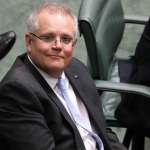The NSW Government’s New (In)justice Laws: More Power to Police and Prosecutors

According to NSW Health, as of 8 pm on 24 March, there were 1,029 confirmed cases of COVID-19 in this state, which had jumped by 211 over the prior 24 hours. And it was around this time that state parliament passed a swag of new emergency laws designed to deal with the unprecedented crisis.
The COVID-19 Legislation Amendment (Emergency Measures) Bill 2020 (NSW) brings into play a range of new laws that only weeks ago would have been untenable. And the amendments that were made to twenty existing pieces of legislation will be in force for the next 6 to 12 months.
NSW attorney general Mark Speakman said during his second reading speech that the bill did three things: it addressed barriers to allow for social distancing, it empowered agencies and institutions to continue functioning and it provided flexibility for the government to operate during the crisis.
And in doing so, the emergency legislation has altered the way that criminal trials will be conducted, it’s enhanced police powers, there’s the possibility that certain inmates will be released early, and thanks to the NSW Greens, there’s some relief for renters.
However, while all agreed that the dire circumstances require extraordinary measures, some MPs warned that with parliament now closed till mid-September, the Berejiklian government has been afforded sweeping powers to create new laws free from the oversight of the rest of parliament.
Criminal justice procedures
The COVID legislation inserted part 5 into the Criminal Procedure Act 1986 (NSW). And the changes made to criminal trials that have raised the most eyebrows have been the provisions enabling the delivery of pre-recordered evidence in NSW District Court and Supreme Court hearings.
The evidence of complainants in alleged sexual assaults, domestic violence incidents or violent crimes can be provided via pre-recording, and this measure can be extended to any witness found to be at an enhanced risk of contracting the virus. This recorded evidence can also be used in subsequent trials.
NSW Greens MLC David Shoebridge explained that this means there may be no right to cross examine, or if there is “it will be extremely difficult to exercise”. He added that he’d never agree to such a provision normally, but this is likely the only way the criminal justice system can operate now.
Criminal defence lawyers are particularly critical of this move, pointing out that allowing the prosecution to have such pre-recorded evidence will give them an enormous forensic advantage when it comes to anticipating what the defence will ask in cross-examination. It will also allow prosecutors to make necessary enquiries to assist them between the date the pre-recorded evidence is taken and the time of the ultimate trial. It will further give complainants time to mull over, anticipate and prepare for what they will be asked at the eventual cross-examination, and prosecutors may also have the time and opportunity to ‘coach’ complainants about what they should say.
All of this is fundamentally at-odds with procedural fairness between the parties and the way trials have been run – inside the courtroom without such enormous advantages afforded to complainants and prosecutors.
Further measures have allowed for a defendant to be tried by judge only, the presumption for bail proceedings will be that the accused will appear via audio-video link, and police issued provisional apprehended domestic violence orders (ADVOs) will now apply for six months, rather than 28 days.
The early release of inmates
Another major emergency power was created under newly inserted section 276 of the Crimes (Administration of Sentences) Act 1999 (NSW), which provides that NSW Corrective Services commissioner Peter Severin will be able to grant early parole to certain inmates.
This will be done on consideration of a prisoner’s offence, the time they have left to serve, their age and their health. Inmates serving a life sentence, as well as those inside for murder, crimes of a sexual nature or a terrorist offence, will not be eligible for early release.
In relation to this measure, the attorney general said, “The bill seeks to provide us with powers we hope we will never have to use but the evolution of the pandemic may require.” While others have pointed out that this provision doesn’t ease the large numbers of inmates being held on remand.
Enhanced policing
The crisis has meant measures contained in the Public Health Act 2010 (NSW) have come into play. Section 62 stipulates that those at risk of having contracted a category 4 condition – which COVID-19 is – can be placed on a public health order that requires them to self-isolate amongst other things.
New section 71A enables NSW police to arrest those contravening a coronavirus public health order. Officers can then return these people to their place of residence, a place where they’ve been ordered to reside, or if they’re a health detainee, to a place of detention.
And sections 112 and 118 have been amended to provide that police are able to require a person who’s suspected to have contravened a public health order to provide their name and address, as well as enabling officers to issue penalty notices in relation to breaches of orders.
Section 70 of the Public Health Act already provided that a subject of an order who doesn’t follow its provisions can be sent away for up to 6 months and/or fined $11,000.
A law unto themselves
Shoebridge raised concerns over newly inserted section 366 of the Criminal Procedure Act 1986. The Greens justice spokesperson termed it a Henry VIII clause, in that it provided the attorney general with unprecedented powers. And although it was amended before passing, its scope remains broad.
This section allows Mark Speakman – with a nod from the NSW Chief Justice or the head of a particular jurisdiction – to make changes to criminal justice procedures if he sees fit to do so “to protect the health, safety and welfare of persons in relation to the administration of justice”.
These powers are coupled with changes to the Constitution Act 1902 (NSW) that allow the executive council to meet via alternative methods to usual, and the NSW Governor is now able to grant royal assent to new bills – turning their provisions into laws – via electronic means.
“This allows regulations to be promulgated by the executive that will override existing laws,” Mr Shoebridge told Sydney Criminal Lawyers “So, we’ve effectively handed legislative powers to the executive for the next 6 to 12 months.”
Respite for renters
Of course, with the major job losses that occurred on Monday following restrictions on businesses imposed at the federal level, there have been widespread concerns about how both residential and retail renters are going to avoid eviction.
But, thanks to some amendments to the emergency bill drafted by NSW Greens MP Jenny Leong, renters are able to breathe a sigh of relief, as laws – that are a first of their kind nationally – provide that regulations can be made to prohibit the eviction of tenants, both residential and retail.
“This empowers the government to make regulations that basically keep people in their homes during the pandemic,” Shoebridge said, adding that he foresees “there will be a regulation that says the non-payment of rent cannot be used as a basis to terminate during the prescribed period”.








